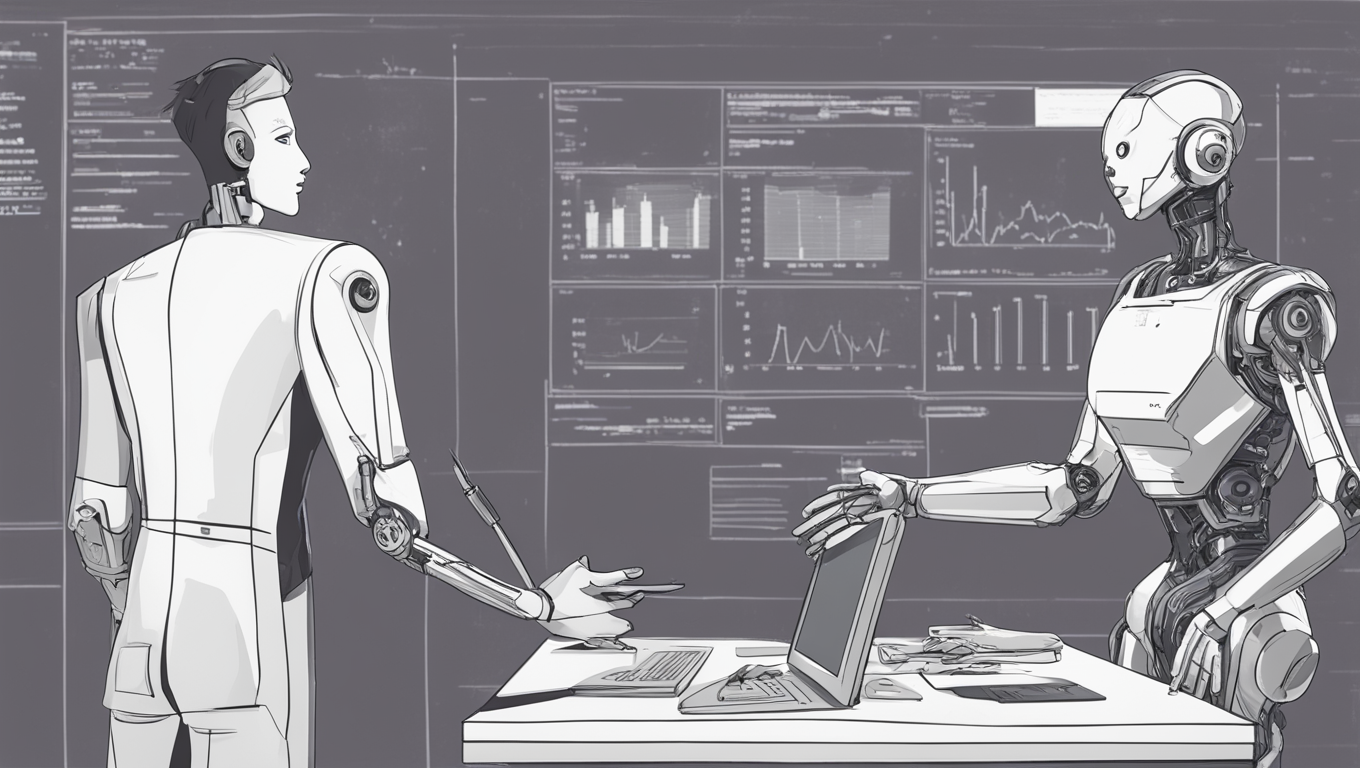Companies around the world are increasingly turning to artificial intelligence (AI) to assist in their hiring and firing processes. AI technology is being used in various ways to improve recruitment and retention, including résumé screenings, candidate matching, interview scheduling, performance evaluations, and even layoff decisions.
One of the most common applications of AI in the hiring process is résumé screening. AI algorithms can quickly and accurately analyze résumés to identify the most qualified candidates for a job. This saves recruiters valuable time and ensures that the most suitable candidates are considered.
AI is also used to match candidates with job openings based on their skills, experience, and preferences. By analyzing large amounts of data, AI algorithms can identify the best matches and present them to recruiters, making the process more efficient.
Interview scheduling is another area where AI is making a difference. AI-powered chatbots, like Phenom’s HR technology platform, can interact with candidates to determine their availability and schedule interviews accordingly. This streamlines the scheduling process and frees up recruiters to focus on other tasks.
Additionally, AI can be used to predict which employees are most likely to leave a company. By analyzing data such as performance evaluations, work history, and employee satisfaction surveys, AI algorithms can identify patterns and make predictions about future behavior. Employers can then use this information to take proactive measures to retain valuable employees.
While the use of AI in the hiring process has clear benefits, there are also concerns about its impact on employees. Some companies have been using AI to make layoff decisions, identifying poor-performing workers based on data analysis. This raises ethical questions about the fairness and transparency of these decisions.
However, companies like Amazon and Google have faced scrutiny for their use of AI in the firing process. Amazon came under fire in 2019 when it was reported that the company used an AI system to automatically fire workers who did not meet productivity quotas. Amazon denied the claims and stated that they provide support and coaching to employees who are not meeting expectations.
Google also faced speculation that AI played a role in the 12,000 job cuts the company made. Former employees questioned whether HR’s use of technology to analyze employee data influenced the layoff decisions. However, Google denied these claims and stated that there was no algorithm involved in the selection process.
The issue of AI in firing decisions recently made headlines when an Amsterdam court ruled that Uber had failed to comply with the European Union’s algorithmic transparency requirements. The court found that Uber’s use of AI in making firing decisions violated regulations, as it did not provide transparency or allow for employee input.
These cases highlight the importance of ethical considerations when using AI in hiring and firing processes. While AI can be a powerful tool for improving efficiency and decision-making, it is essential to ensure that it is used in a fair and transparent manner.
In conclusion, AI is revolutionizing the way companies hire and fire employees. It offers numerous benefits, such as streamlining the recruitment process, identifying the best candidates, and predicting employee behavior. However, there are ethical concerns about the use of AI in layoff decisions, and it is crucial for companies to consider these implications as they embrace this technology.
Direct Quotes:
Hal Goldberg, CEO of Phenom: “AI-powered recruiting tools offer advantages over traditional recruiting methods, including analyzing large amounts of data, automating the recruitment process, reducing bias, helping companies find and hire passive candidates who may not be actively looking for a job, and improving employee retention.”
LinkedIn spokesperson: “Over the next year, LinkedIn will roll out Recruiter 2024 to enable recruiters and talent acquisition professionals to find on-target candidates for their jobs faster.”
Amazon spokesperson (in response to the allegations of AI-driven firings): “It is absolutely not true that employees are terminated through an automatic system… We would never dismiss an employee without first ensuring that they had received our fullest support, including dedicated coaching to help them improve and additional training.”
Google statement (denying the role of AI in layoff decisions): “There was no algorithm involved… Similar to many companies, we have performance expectations regardless of whether they are corporate or fulfillment center employees. We support people who do not perform to the levels expected of them with dedicated coaching to help them improve and be successful in their career at Google.”
Uber spokesperson (in response to the legal action): “At the time when these drivers’ accounts were flagged, they were reviewed by our Trust and Safety Teams, who are specially trained to spot the types of behavior that could potentially impact rider safety. The court confirmed that the review process was carried out by our human teams, which is standard practice when our systems spot potentially fraudulent behavior.”





Use the share button below if you liked it.